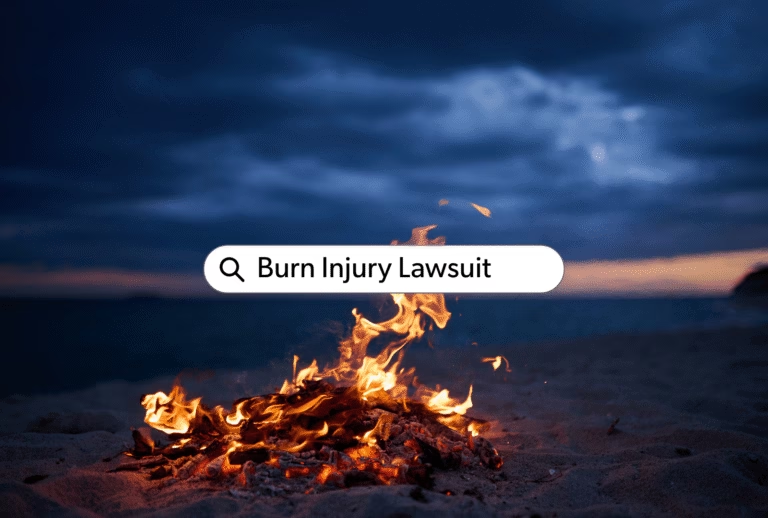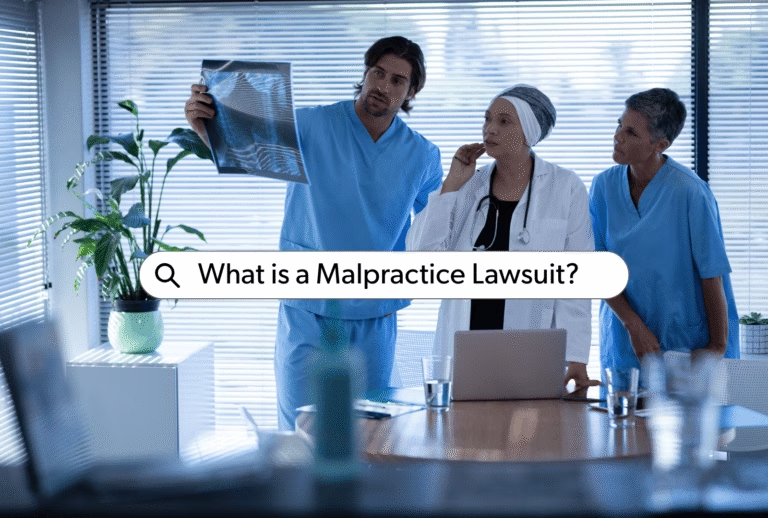Yes, you can sue for emotional distress in the state of California. If you are involved in a more severe accident, including extreme negligence or drunk driving, you may be entitled to compensation for stress or emotional trauma.
In California, there is no maximum amount you can receive. Settlements for emotional distress can vary based on the severity of the accident.
Click here to get a free consultation with a personal injury attorney.
Can You Sue for Emotional Distress?
Yes, you can sue for emotional distress after a car accident or rideshare accident in California, especially if the distress is severe and supported by documentation. The law recognizes emotional suffering as a real injury, but it must meet certain legal criteria to be compensable.
Emotional distress is often part of a broader personal injury claim. California law allows you to recover non-economic damages for the emotional toll caused by a car crash, including anxiety, PTSD, depression, and loss of enjoyment of life. However, just feeling shaken or upset isn’t always enough. You must show that the emotional distress has had a measurable impact on your life and well-being. If you’re not sure if you have a reasonable emotional distress claim, a car accident attorney can help you navigate the process, and determine if you have a claim.
There are two common legal paths for emotional distress claims in California:
1. Negligent Infliction of Emotional Distress (NIED)
NIED occurs when someone’s careless actions cause emotional harm. For example, if a reckless driver causes a crash and you suffer trauma as a result, you may be able to recover compensation even without a physical injury, but it’s easier to win san NIED claim if physical harm is also involved.
2. Intentional Infliction of Emotional Distress (IIED)
IIED is less common in car accident cases but applies when someone acts outrageously or maliciously. For example, if a road rage incident turns into a deliberate crash or confrontation, you may have grounds to sue for emotional distress caused by intentional behavior.
Difference Between Physical Injuries and Emotional Injuries
Physical injuries affect your body; emotional injuries affect your mind. Both are recognized under California personal injury law and may qualify for compensation after a car accident.
Car accidents can leave lasting scars, but not all of them are visible. While physical injuries like broken bones, whiplash, or head trauma are easier to diagnose and prove, emotional injuries are often just as real, and sometimes even more disruptive to daily life.
Symptoms of Emotional Injuries
Emotional injuries involve the psychological impact of an accident. Common emotional distress symptoms include:
- Anxiety: Anxiety is a mental health condition characterized by persistent worry, fear, or nervousness, often triggered by traumatic events. In emotional injury claims, anxiety can arise after a car accident and significantly interfere with a person’s ability to function normally.
- PTSD: Post-Traumatic Stress Disorder (PTSD) is a psychiatric condition that can develop after experiencing or witnessing a traumatic event, such as a serious car accident. In the context of emotional injury claims, PTSD may manifest through flashbacks, nightmares, or severe emotional distress that disrupts daily life and requires ongoing treatment.
- Depression: Depression is a mental health disorder marked by persistent feelings of sadness, hopelessness, and loss of interest in activities. After a car accident, individuals may develop depression as an emotional injury, especially if the trauma leads to lasting pain, lifestyle changes, or financial stress.
- Mood Swings or Social Withdrawal: Mood swings and social withdrawal are common signs of emotional distress following a car accident. A person may experience sudden shifts in emotions, such as irritability, anger, sadness, which can cause someone to isolate themselves from friends and family, which can indicate deeper psychological trauma.
- Fear of Driving or Being in a Car: Fear of driving or being in a car is a frequent emotional response after a serious crash. Fear of driving can manifest as panic attacks, avoidance of travel, or an overwhelming sense of dread when approaching a vehicle, severely disrupting a person’s daily life and independence.
- Sleep Problems: Sleep problems are a common symptom of emotional distress following a car accident. Victims may struggle with falling asleep, staying asleep, or experiencing nightmares and flashbacks related to the crash. Sleep problems can have a substantial impact on your health, leading to additional medical costs down the line.
Legal Impact: Why the Difference Matters
Under California law, both types of injuries are eligible for compensation. However, emotional injuries can be harder to prove, especially if they exist without any physical harm. Insurance companies often question claims that don’t involve physical trauma, making documentation and legal support even more critical.
That said, emotional injuries may qualify for non-economic damages, which can include pain and suffering, loss of enjoyment of life, or emotional trauma. Physical injuries typically support both economic (medical bills, lost income) and non-economic claims.
Example of Emotional Distress after a Car Accident
After a rear-end collision on the freeway, Maria walked away with only minor bruises. But in the weeks that followed, she couldn’t bring herself to drive. Every time she approached a stoplight, she panicked, convinced another car would slam into her from behind. The fear grew so intense that she started avoiding her commute, lost her job, and eventually needed therapy for what doctors diagnosed as post-traumatic stress disorder. Even though her physical injuries healed quickly, the emotional trauma lingered, impacting her daily life far more than anyone expected.
Proving Emotional Distress
Emotional distress is an invisible injury, so proving it requires strong, detailed evidence. Medical records and mental health documentation are among the most powerful tools for supporting your claim. If you’ve seen a therapist, psychologist, or psychiatrist, their records and expert opinions can help show the severity and duration of your emotional suffering. Consistent treatment, a formal diagnosis (such as PTSD, anxiety, or depression), and notes about how your daily life has been affected all contribute to a more credible case.
In addition to professional documentation, your personal account can also play a key role. Journals, written statements, and testimony from family or friends can demonstrate how the accident changed your mental or emotional state. For example, if your relationships, work performance, or ability to enjoy life have suffered since the crash, those impacts can support your claim for compensation. Remember to also save any medical records, as there is a greater amount of evidence needed to build a legal claim. The more specific and consistent the evidence, the stronger your emotional distress case will be.
What Damages Could You Recover in an Emotional Distress Claim?
In an emotional distress claim after a car accident, the damages you may recover generally fall under the category of non-economic damages. Non-economic damages include compensation for anxiety, depression, insomnia, fear, loss of enjoyment of life, and other psychological effects that stem from the crash. In many cases, you may need to seek treatment with a mental health professional while recovering from an accident. Costs associated with with reparation of mental suffering can be included if you seek compensation for emotional distress. While emotional damages don’t have a fixed dollar amount like medical bills or car repairs, they are just as real and can be substantial for the victim.
When to Contact a Personal Injury Law Firm
Any time you’re in a moderate to severe motor vehicle accident, you should consider consulting with an attorney. Navigating insurance can be difficult. A skilled personal injury law firm can give you the best chance at fair compensation for emotional injuries as well as physical ones. A well-established law firm like Lawyers for Justice, P.C. is equipped to handle any personal injury case.
Car accidents can be expensive. Between medical expenses, lost wages, and property damage, even a small crash can be expensive. Without a lawyer, you could be on the hook to cover the accident costs yourself.
If you or someone you know was in a motor vehicle accident recently, call (818) JUSTICE for a free consultation.motor vehicle accident recently, call (818) JUSTICE for a free consultation.
Last Updated on September 4, 2025



